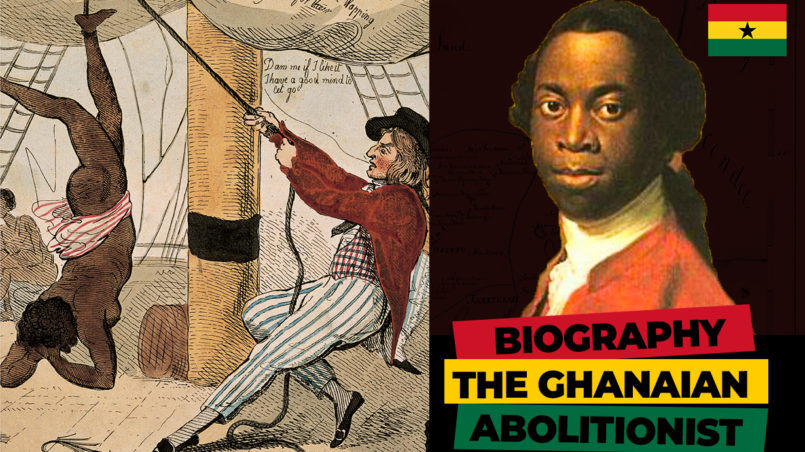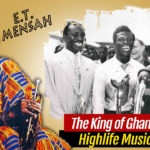Quobna Ottobah Cugoano, also known as John Stuart, was an abolitionist, political activist, and philosopher from the Gold Coast (present-day Ghana) in West Africa. He was born in 1757 in Ajumako, a town in the Central Region of Ghana.
When Cugoano was just 13 years old, he was abducted by slave traders along with around 13-20 other boys and girls his age as they were playing in a field and sold into slavery. They were transported to Grenada.
In his work “Thoughts and Sentiments on the Evil & Wicked Traffic of the Slavery & Commerce of the Human Species,” Cugoano gives a detailed account of the inhumane treatment he and the other enslaved individuals faced during their journey on the slave ship.
Upon arrival, Cugoano was sold as a slave to plantation owners in Grenada. He described his treatment as extremely harsh: “Being in this dreadful captivity and horrible slavery, without any hope of deliverance, for about eight or nine months, beholding the most dreadful scenes of misery and cruelty, and seeing my miserable companions often cruelly lashed, and, as it were, cut to pieces, for the most trifling faults; this made me often tremble and weep, but I escaped better than many of them.”
Cugoano was kept as a slave in the Caribbean until he was bought by Alexander Campbell, a merchant, who brought him to England in 1772. He was baptized and given the name John Stuart at St James’s Church, Piccadilly in 1773. He had a strong desire to learn and taught himself to read and write, which he said became his recreation, pleasure, and delight.
In 1784, Cugoano was hired by artists Richard and Maria Cosway and quickly gained the attention of prominent British figures. He joined the “Sons of Africa,” an abolitionist group that actively spoke out against slavery. The group was made up of Africans who had been freed from slavery and were living in London. Many had been educated and used their literacy to write to newspapers and delivered public lectures and petition parliament on these issues.
In 1786, Cugoano and his friend William Green played a crucial role in saving Henry Demane, a kidnapped black man, from being shipped back to the West Indies by contacting Granville Sharp, who at that time was prominent anti-slavery activist. Sharp was able to remove Demane from the ship just before its departure.
In 1787, Cugoano, with the assistance of his friend Olaudah Equiano, published a personal account of his experiences as an enslaved person titled “Narrative of the Enslavement of a Native of Africa.” He strongly advocated the abolition of slavery and the immediate liberation of all enslaved individuals. Copies of the book were sent to King George III, the Prince of Wales, Edmund Burke, and other influential politicians, but it was not successful in convincing them to support the abolition of the slave trade. Cugoano was the first African to publicly call for the complete abolition of the slave trade and freedom for all slaves in his book, despite the opposition of King George III and other members of the royal family.
Cugoano continued to publish shorter versions of his book, targeting the “Sons of Africa” group. In 1791, he moved to a new address in 12 Queen Street in Mayfair. The last recorded letter from him, written in 1791, mentions his plans to promote the book by traveling. He expressed a desire to travel to Nova Scotia to recruit settlers for a proposed colony of African Britons in Sierra Leone, where slavery would be abolished. The exact cause, date, and location of his death are unknown, but it is believed that he passed away in the 1790s.
Even though Cugoano didn’t live to see the abolition of slavery in Britain in 1807 and in the colonies in 1834, he would’ve been gratified knowing that slavery was abolished.
He consistently campaigned for ending slavery and exploitation in Africa and promoted Africa’s economic liberation and the freedom of its people. He was a proud Son of Africa.
In 2020, English Heritage erected a blue plaque at Schomberg House on Pall Mall to commemorate Cugoano.


